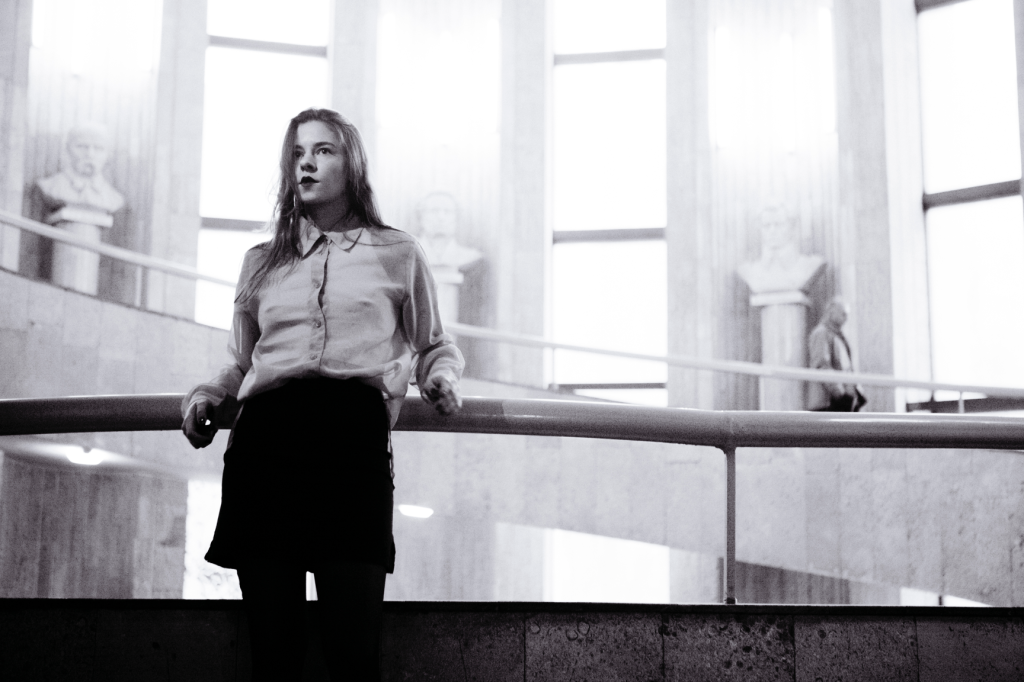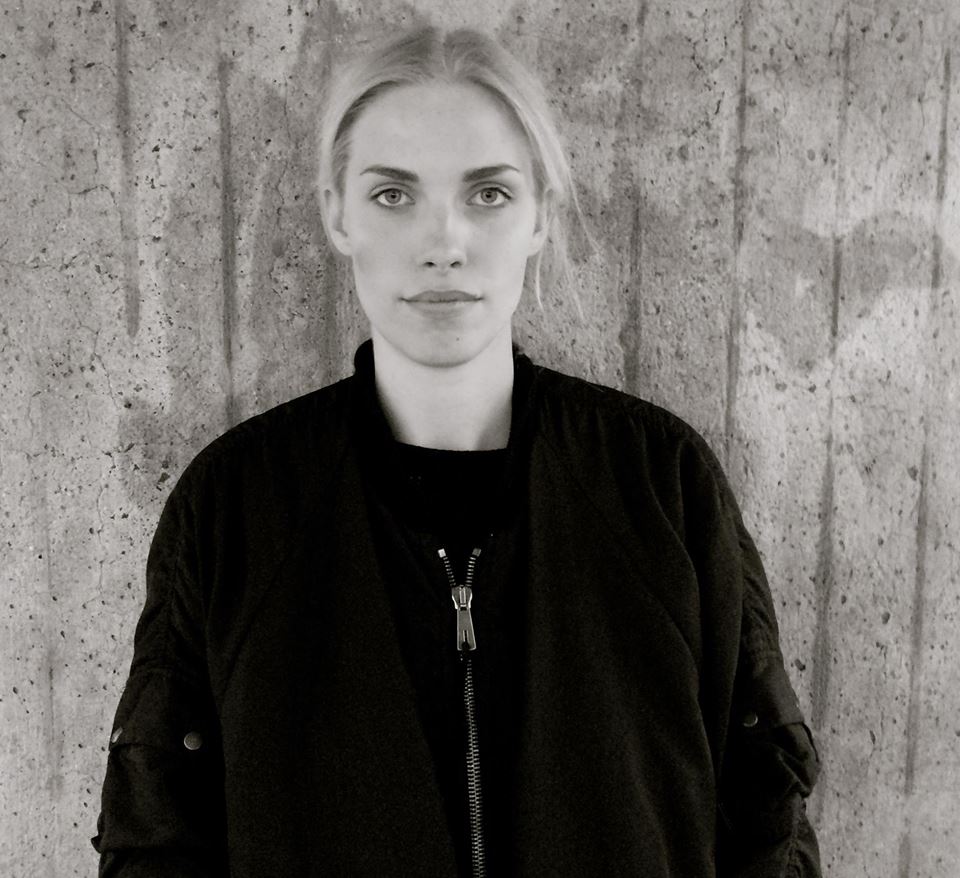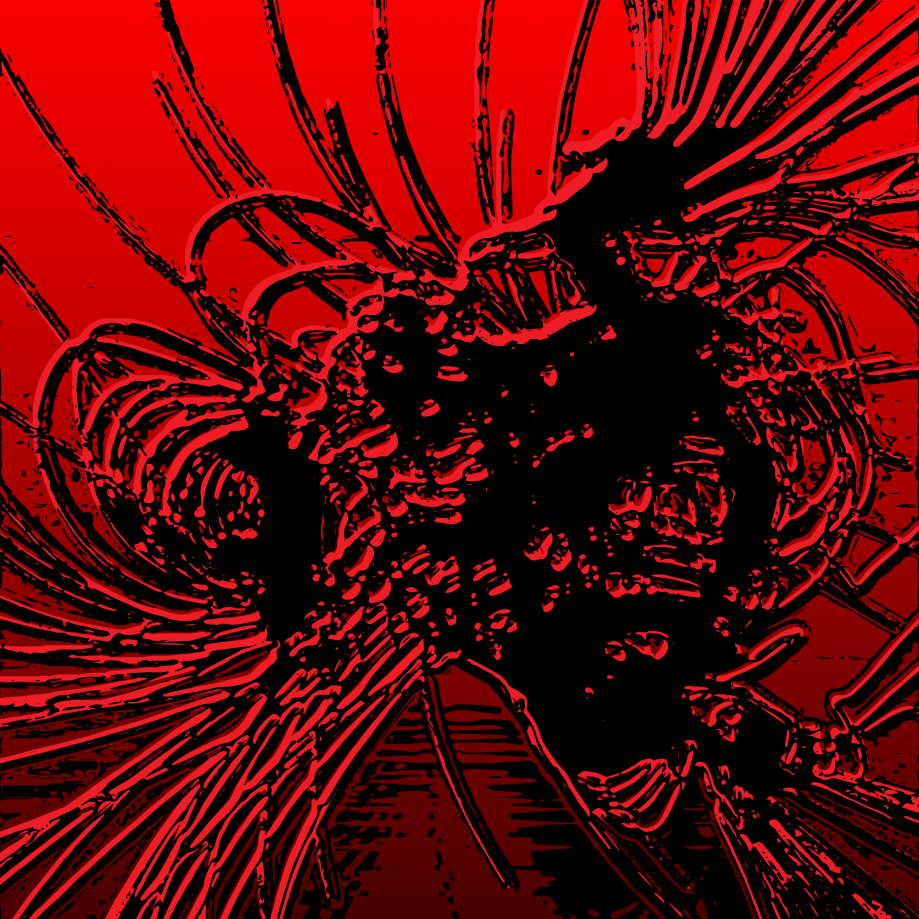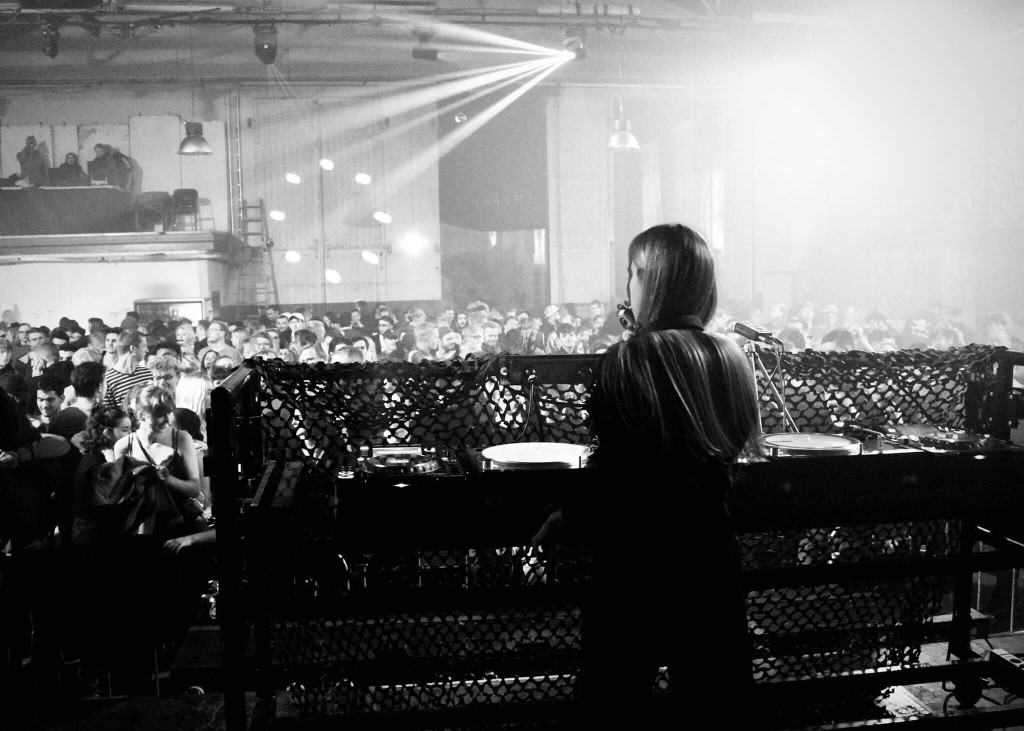From Venezuela to Europe, DJ/producer Hyperaktivist’s passion for music has been about connecting people as it has about connecting music. She talks to us about that process of community building, even in the face of resistance – and shares hours of music mixed with Mohajer at her side.
MESS is “Mindful Electronic Sonic Selections.” It’s advertised as techno, as house, as “adventurous sounds.” The party itself is once every third month at Ohm, the intimate club built in the former battery room of the power plant that now houses Tresor and Atonal Festival. But follow the connections of this party, and you get a decent map to a range of inspiring DIY, collective efforts of artists around Europe and Latin America. For any of us struggling to put together our own musical lives, our own parties, our own collectives and communities, it’s a terrific instructive effort – not least because of the personality and will of Hyperaktivist, aka Maracaibo, Venezuela-born, Berlin-based Ana Laura Rincon.
I’m personally indebted to Ana Laura in the time I’ve known her, in that in a sometimes mercurial, transient Berlin scene, she has consistently been someone whose vision and friendship I’ve known I could always trust. Of course, maybe it’s better though to first listen to how she communicates musically. She shares with us a mix she made B2B with Mohajer (aka Melinda Mohajer), her partner.
The magical thing about music and perhaps specifically techno is, when someone makes a confident sonic statement, it makes that feeling of strength infectious:
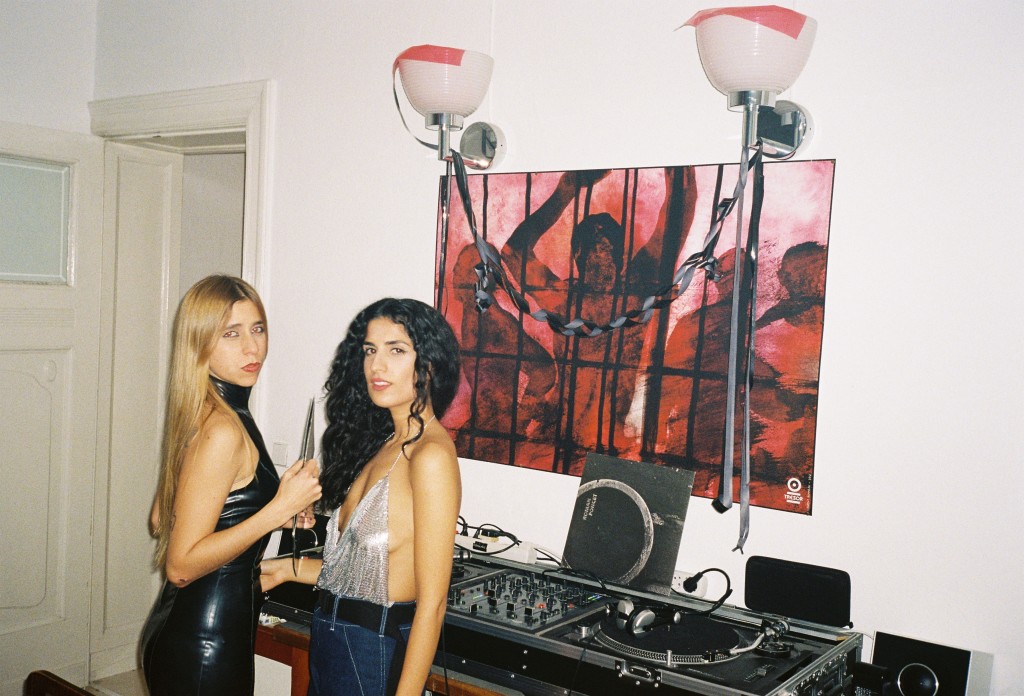
Hyperaktivist went B2B with Mohajer for MESS in February – a perfect Valentine’s Day pairing. Listen to their full mix. Photo courtesy Ana Laura Rincon.
The Hyperaktivist B2B Mohajer set comes to us from the last edition, in February. MESS is never advertised as female-only lineups; it’s a completely mixed crowd, and it never uses artists’ gender as a selling point. For her part, Ana Laura just refers to “chemistry and style.” But the fact remains: some of the most significant forces on the musical scene are female, transgender, and non-binary. And a lot of those figures are still often very underground. So let’s let Ana Laura guide us.
For the edition coming up on Berlin Saturday May 26, we get to meet two special artists:
Nastya Muravyova (Celestial, Kyiv)
“She’s a rising, yet brightly shining star of Kyiv’s underground scene,” Ana Laura says. “She’s balancing on the edge of pumpy 4×4 techno and sharp breakbeat, slightly aggressive — and all the way sexy.”
Jessie Granqvist (Esperanto, Stockholm)
Ana Laura: “She’s a product of the vibrant underground-scene that’s currently growing rapidly in Stockholm. With roots grounded in illegal raves and open airs, she has gained notoriety for her style of dark and meditative sounds merged together into a very danceable mix. With both technicality and an eclectic selection of records, she has the talent to truly build and build a long lasting vibe on every floor that she appears on.”
facebook.com/jessie.granqvist/
PK: I find it interesting that you’re pulling people connected to collectives, parties, scenes in other cities. What’s important to you about doing that?
Hyperaktivist: For me, at the moment, I’m really not finding my inspiration so much from the scene in Berlin. So I always try to invite and collaborate with people from other places – so we can experience something fresh and different for us here in Berlin. With bookings, I take my time to know that everyone is going to have a chemistry that will work through the night and that it will add something new.
I mean, it seems like that’s been a big part of what defined the scene in Berlin – bringing in influence from elsewhere, whether it’s Detroit or Latin America or another part of Germany. So that’s a problem if it becomes just an export culture, if it’s all the same, right?
Hype has taken over Berlin; that’s a fact. People come here to live that “Berlin experience.” What scares me is the effect this might have on some of the artists that reside in Berlin. I worry some DJs feel pressured to play what’s expected from them more than what they feel at the time. And I worry about the consequences of that for the people who actually live in Berlin – whether they’re feeling that they’re going to the same party over and over, or that there are actually new things happening.
At this point I’m trying to go back to the roots a bit, thinking about why I started DJing and organizing parties in the first place. For me it all started in Venezuela, a country with few electronic music affiliations.
I discovered the electronic music scene when I was about 16 or 17. That happened to be around the first time I saw a DJ playing – there were maybe three or four people in my whole city who owned turntables.
It might sound funny, but for me it was a revelation. I knew right there, this is something I wanted to do. I was collecting music already; my mom had a great music collection and she was among other things a radio host. I was already completely fascinated about music and how we needed it to express ourselves and how we naturally feel like sharing it with others. So for me, seeing a DJ – “the master of ceremony” – was a turning point.
I started to get into it, but the scene was small and many people wouldn’t really have access to it. I first started organizing parties and eventually I even opened the first club in my city dedicated to electronic music only. I did it with my three best friends; we ran it for four years. During this time, we would also throw free parties in the streets. We had the intention of making electronic music more accessible to anyone and somehow contributing to the development of this scene that had already become a very important, determinant part of my life
That’s why I try to work with collectives that I feel are working to develop the scene in their own countries. When you start to do this in a place that’s not like Berlin, that’s not well developed, where the industry is not like here, you know that people are doing this because they love it. And they love it so much that they need it and if it doesn’t exist, then they do it. They need it to be part of their lives, so they make it happen.
So I like to work with people I feel are involved in music for these reasons, and doing something with heart and that is honest. Not only because of hype or because they want to be famous. It’s more because we fucking love it.
How do you describe what MESS is about? I know you aren’t explicitly talking about this being female + non-binary only, as far as lineups – so how would you express that dimension?
First of all, I feel the concept of MESS is ever-evolving. We need to pay attention to the necessities of the electronic music scene, what needs work and what’s overlooked.
Berlin is such a masculine city in many ways, music scene included. I’ve met some of the most amazing women and the most strong personalities in Berlin. So I have a hard time accepting why women still need to fight very hard and prove themselves over and over in order to be accepted and sometimes even welcomed.
I think about MESS as a space where I don’t want to make a political statement. I have come to understand the best points are made when you don’t have to explain too much but instead you let things speak by themselves. Actions speak louder than words, right?
So I put together bookings based on chemistry and style. I invite super talented artists and I let them do their thing. And slowly but surely, people are realizing that there’s something different. And I get feedback on it – sometimes at the party, people come to me and say, like, ‘this is really cool, what you’re doing, there’s something different about the party.’ So it’s great to let people see by themselves.
I also always try to put together bookings where people are from diverse cultural backgrounds, so you see different approaches.
In my utopian world, we shouldn’t even be having these discussions between each other. At the end of the day, more than anything else, it should be about the music, about friendship, acceptance, respect — about the feeling you are part of something special.
And this is what MESS is at the moment.
So when you go to find these artists, these collectives and other scenes – how are you connecting with them?
Research. [laughs] I spend time – a lot of time, listening to the music. Not only once. You know how it is with music – this day you hear this and you think, oh wow, I love this … next day you hear the same and it’s like, this is actually fatal. I give myself time to hear it, in different moods, see how I feel about it. I hear it with friends. There are different things that catch me. Usually, the things that catch me are related to attitude — when I see that this person wants to say something, there’s something there.
It takes time. That’s why I do MESS every three months, because I need time to prepare and I also want to have a good reason to make the party. For example, the last edition happened on February 17th, the weekend after Valentine’s Day. We decided to make a “Club Affair” and have only couples playing, as in back to back. So we invited Isabella from Colombia B2B Bella Sarris from Australia, Johanna Schneider with Philippa Pacho from Sweden with their B2B project Sthlm Murder Girls, and I played with Melinda Mohajer. I saved our recording specially for you at CDM.
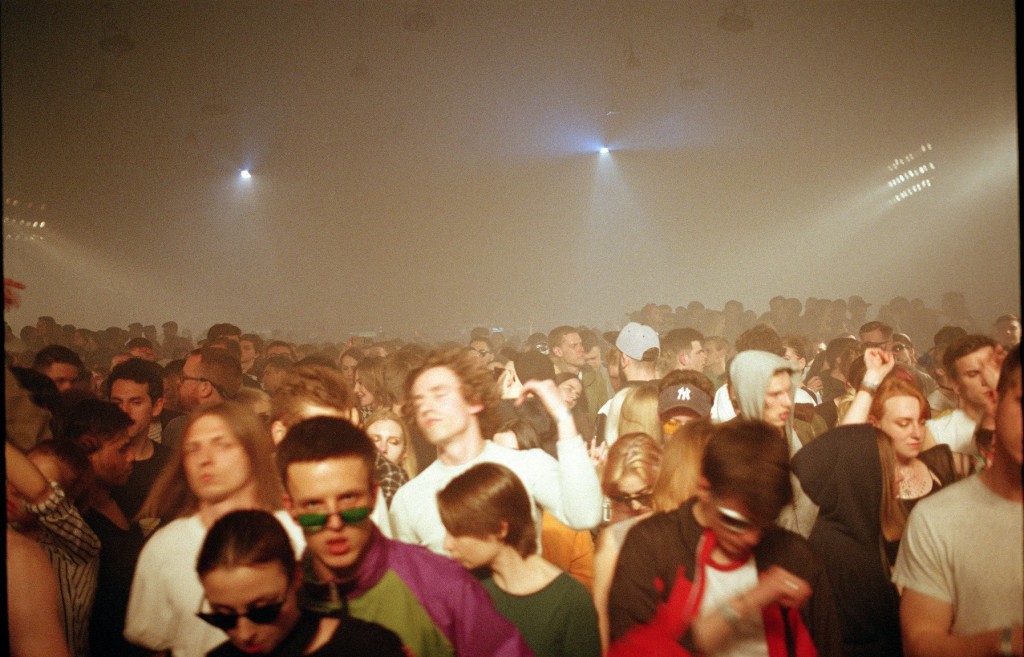
Схема. Via Facebook.

Hyperaktivist vs. Maricas Maricas, Barcelona.
I’ve been collaborating with various collectives / parties. For a few examples:
Maricas, a queer party collective from Barcelona, run by Isabella, a Colombian DJ who played at our last edition, along with Uruguayan friends
www.facebook.com/pg/maricasmaricasmaricas
www.instagram.com/maricasmaricas/
Fast Forward from Copenhagen — these guys are making exciting new techno and crazy illegal parties, and you feel their collective really has these family vibe, which I love.
www.facebook.com/fastforwardcopenhagen/
Esperanto music from Sweden – they’re pushing up-and-coming Swedish artists.
https://www.facebook.com/EsperantoMusic/
Cxema from Ukraine, where they are taking abandoned locations and throwing badass raves and putting the Ukraine scene on the international radar.
www.facebook.com/cxemapage/
http://www.c-x-e-m-a.com/
How does that experience compare to when you were running a club in Venezuela?
It was the same – collaborating with the development of the scene and the culture of electronic music. It’s what I’ve been working for, always.
I had this friend, and he had this house downtown in my city Maracaibo, the second largest city in Venezuela. And he was like, ”I want to do something here, what should I do?” I didn’t even think for one second — I turned around and told him, we’re gonna do a club.
And then we started the club, and it was amazing. It became a meeting point for all the scene in the city and across the country. So we started to do the same – invited collectives from Caracas and all the other cities from Venezuela to come to play, and then we would go to play their parties in their cities. And then it grew, and it started to happen between Colombia, Brazil, Argentina. Then we started to bring artists from Europe, but at this point the political situation of the country started to critically worsen. We had an exchange control that started to happen and wouldn’t allow us to access any foreign currency anymore, so buying records, equipment, or making international bookings became impossible. The whole country started to go down down and boom – it was gone. And that’s when we stopped.
But now one of the best clubs in Bogota, Video Club, is run by a good friend of mine Enrique Leon with I used to have the club with in Venezuela. And he’s putting together great bookings, making showcases with everyone. Dekmental Sound System, Aurora Halal, etc….
If you’re in Berlin, don’t miss MESS tomorrow at Ohm, Saturday 26 May. Or see you in the scene in your neck of the woods.
MESS at OHM
Facebook event
Resident Advisor
More from Hyperaktivist / Mess
www.facebook.com/Hyperaktivist/
www.soundcloud.com/hyperaktivist
www.soundcloud.com/messberlin
www.facebook.com/messberlin
At top: Hyperaktivist – Pic by Honza Kolář.
